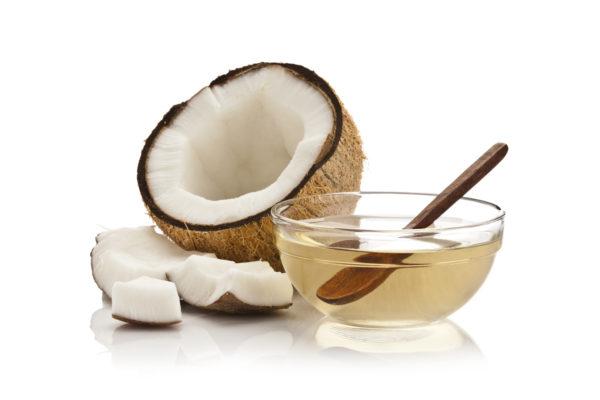New nutrition trends pop up online and in health magazines all the time. With so much advice floating around, it’s easy to get confused about the right foods to eat. We went straight to the experts—Altru’s dietitians—and asked them to bust three popular nutrition trends. Here’s what they had to say.
1. Myth: Gluten-Free Diets Result in Weight Loss.
Truth: A gluten-free diet is followed when someone has been diagnosed with Celiac Disease. A gluten-free diet consists of eliminating barley, rye, oats, and wheat. Weight loss may occur if you eliminate most chips, cookies, and desserts. If the chips, cookies, and desserts are replaced with gluten-free items, the calories are usually the same, due to using a different form of flour. So, if you haven’t been diagnosed with Celiac and want to lose weight, reducing calories and increasing exercise is the way to go.
2. Myth: Juicing (the Process of Removing Juice From Fresh Fruits and Vegetables) Results in Weight Loss.
Truth: Juicing is no healthier than eating whole fruits and vegetables. Juice is often lower in nutrients, and the fiber content is near zero. Whole foods usually contain more vitamins and minerals, as many of these nutrients are in or near the skin, which gets discarded as pulp when juiced. Your body does not absorb nutrients better in juice form.
Yet, juicing isn’t all bad. Additional truths:
- Some juicers do reserve the extracted pulp. This fiber-rich pulp can be added to soups, stew, and quick bread for added benefit.
- Juicing may improve nutritional intake by incorporating fruits and veggies that may not get eaten due to flavor or texture preferences.
- Juicing can be used as part of a sensible weight loss program, which would also include a variety of nutritious whole foods.
The bottom line: when enjoyed in moderation, fresh-squeezed juice can be a nice way to get in more vitamins and minerals from a variety of fruits and vegetables. However, the best way to lose weight and promote optimal health is to eat a well-balanced diet made up of foods from all food groups.
3. Myth: Since Dietary Supplements Are Easily Available – and Don’t Require a Prescription – They Are Safer Than Drug Products and Can Be Used to Self-Treat Illness Without a Health Professional’s Advice or Supervision.
Truth: Taking supplements will not necessarily improve your performance and can be dangerous. More is not better. Studies have shown that some herbal products interact with drugs and can have a wide range of effects, including:
- John’s Wort may interfere with drugs used by organ transplant patients, and drugs used to treat depression, seizures, and certain cancers
- Some alter the effectiveness of oral contraceptives
- Garlic, Ginko, danshen, and Dong Quai can cause the blood to thin
Always consult with your health care professional prior to taking dietary supplements.
4. Myth: Avoid Carbohydrates to Lose Weight.
Truth: Cutting back on carbs may help you lose weight in the short term, but this is mainly because you are eating less food and calories. Significantly reducing carbohydrates means you will miss out on nutritional benefits provided by healthy choices, such as whole grains, fruits, starchy vegetables, dairy, and dried peas and beans. Low-carb diets are restrictive and hard to follow. The weight you lose will likely be regained.

5. Myth: Coconut Oil Is Healthier Than Olive Oil.
Truth: Coconut oil does not offer any more health benefits beyond olive oil. In fact, it may be unhealthy if consumed in large amounts due to its saturated fat content.
Coconut oil is rapidly increasing in popularity and health claims range from helping people lose weight to curing Alzheimer’s disease. There are two basic categories of fat: saturated and unsaturated. Coconut oil is about 90 percent saturated fat. Too much saturated fat in the diet can raise LDL “bad” cholesterol, which increases the risk for heart disease. It also raises HDL “good” cholesterol.
Olive oil is mainly unsaturated fat, and unsaturated fats lower LDL “bad” cholesterol and raise HDL “good” cholesterol. Coconut oil can be used occasionally for its flavor or to replace other hard fat sources, such as vegetable shortening in baking.
6. Myth: A Healthy Diet Is Too Expensive.
Truth: Consider not only the cost at the grocery store but also the economic costs of diet-related chronic diseases. It’s possible to eat well on a budget.
Obesity, heart disease, and diabetes could be dramatically reduced by a healthy diet. While groceries do add up quickly, it’s difficult to put a price on healthy eating. To help keep healthy foods a part of any budget, keep the following in mind:
- Get into the habit of menu planning and shopping from a list. Avoid wandering aimlessly through the store, picking up items you might end up using.
- Pay attention at the checkout. Make sure prices are tallied correctly.
- Buy store brands. These are often 15-20 percent less expensive when compared to national brands, while the quality is very similar.
- Shop the perimeter of the store to avoid tempting convenience items in the middle aisles. These are often less healthy and more expensive.
- Use coupons and watch sales to take advantage of great deals. Remember: the deal isn’t so great if you don’t need the food or won’t use it.
- Eggs, beans, canned tuna, frozen veggies, peanut butter, and seasonal fruits and veggies are a few healthy foods that won’t break the bank.
- Plan a meatless meal once or twice a week. (See Myth #3.)
7. Myth: A Vegetarian Diet Does Not Provide Enough Protein.
Truth: Protein doesn’t just come from animal products. Beans, nuts, and whole grains can provide ample protein for almost everyone as part of a well-planned diet.
Plant-based proteins are loaded with other nutrients as well: fiber, folate, potassium, and antioxidants, to name a few. Substituting meat for beans and using animal protein as an accent rather than the main event of a dish are effective strategies to prepare filling and nutritious meals. Eating plant-based protein sources may also help you lose weight, lower cholesterol and blood pressure, and slash your risk of cancer and heart disease.
Lifestyle modification, rather than quick fixes, is the way to go for long-term weight loss and maintenance. If you are looking to manage your weight by changing your diet and exercise for the better, visit one of our dietitians.







